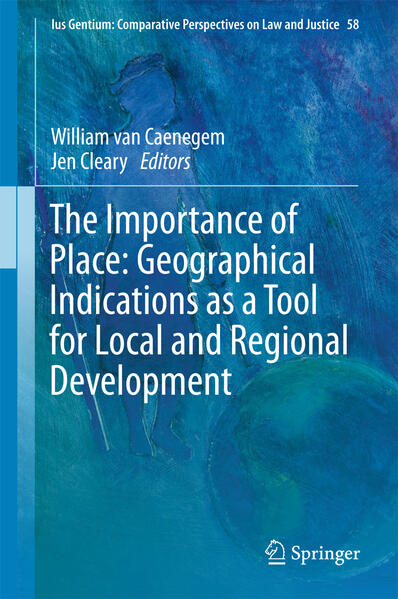
Zustellung: Do, 24.07. - Mo, 28.07.
Versand in 7 Tagen
VersandkostenfreiBestellen & in Filiale abholen:
This book explores the potential benefits and disadvantages of geographical indication (GIs) registration schemes, analyzing the utility of GI registrations for the development and promotion of regional economies, both in national and international markets. The book draws on the van Caenegem, Cleary & Drahos Australian Provenance Report, along with the valuable empirical data collected in connection with it.
The book situates the rural development question in an international context, presenting several case studies from Italy, France and Morocco, New Zealand and Australia. The book contains various chapters focused on comparing regulatory structures in various relevant jurisdictions and drawing on other countries' experiences. It contains significant contributions from industry actors with extensive experience in regional branding initiatives and GI-related policy issues.
Progressive in structure, the book starts from the 'big picture' level before moving down to the local and concrete scale. Geographical indications of Australian products are vital both in domestic and overseas markets by accurately representing the origin and quality of niche agricultural products. Thus, with a particular focus on Australia, the book promotes the assessment of geographical indications as potential regional assets that will help producers develop local quality indicators that will serve as public goods for successive generations of producers.
Inhaltsverzeichnis
Part I: International Trade: Perspectives on Politics and Place. - Chapter 1. Protecting Geographical-Origin-Brands Abroad: The Geneva Act of the Lisbon Agreement (Matthijs Geuze). - Chapter 2. The Geneva Act of the Lisbon Agreement: Controversial Negotiations and Controversial Results (Daniel J. Gervais). - Chapter 3. The Global Struggle Between Europe and United States Over Geographical Indications in South Korea And in the TPP Economies (Bernard O connor). - Chapter 4. The Aroma of Opportunity: The Potential of Wine Geographical Indications in the Australia-India Comprehensive Economic Cooperation Agreement (Susanne Taylor). - Part II: Old and New World, Development Perspectives. - Chapter 6. Mitigating `One-Size-Fits-All Approaches to Australian Agriculture: Is There a Case to be Made for Geographical Indications? (Jen Cleary). - Chapter 7. Protecting Appellations of Origin: One Hundred Years of Efforts and Debates (Genevieve Teil). - Chapter 8. From Geographical Indications to Collective Place Branding in France and Morocco (Mechthild Donner). - Chapter 9. GI Blues: Geographical Indications and Wine in New Zealand (John Overton). - Chapter 10. Do Geographical Indications for Handicrafts Deserve a Special Regime? Insight from Worldwide Law and Practice (Delphine Marie-Vivien). - Chapter 11. Old World Case Study: The Role of Protected Geographical Indications to Foster Rural Development Dynamics: The Case of Sorana Bean PGI (Giovanni Belletti). - Chapter 12. New World Case Study: King Island - Living the Place Brand (Jennifer Thorn).
Produktdetails
Erscheinungsdatum
05. April 2017
Sprache
englisch
Auflage
1st edition 2017
Seitenanzahl
300
Reihe
Ius Gentium: Comparative Perspectives on Law and Justice
Herausgegeben von
William van Caenegem, Jen Cleary
Verlag/Hersteller
Produktart
gebunden
Abbildungen
XII, 287 p. 7 illus., 6 illus. in color.
Gewicht
672 g
Größe (L/B/H)
241/160/21 mm
ISBN
9783319530727
Entdecken Sie mehr
Bewertungen
0 Bewertungen
Es wurden noch keine Bewertungen abgegeben. Schreiben Sie die erste Bewertung zu "The Importance of Place: Geographical Indications as a Tool for Local and Regional Development" und helfen Sie damit anderen bei der Kaufentscheidung.









